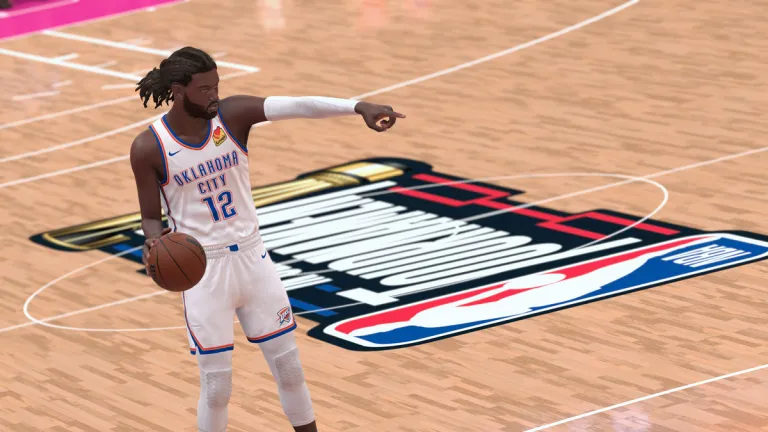NBA 2K publisher Take-Two Entertainment is once again being sued over its alleged predatory microtransaction model. The lawsuit, filed in California by a minor and their parent, accuses 2K Games and Take-Two of conversion and civil theft for not carrying over purchased virtual currency (VC) to the game’s sequel. The plaintiffs also claim that the companies deactivate prequel servers quickly, leaving players with unspent VC unable to use it.
The class action argues that 2K Games’ conduct is unfair, illegal, and greedy. It points out that other games, such as Activision’s Call of Duty, allow players to transfer their purchased currency to new titles. The plaintiffs argue that the inability to access purchased VC is equivalent to theft, as players have spent money on currency they can no longer use.
This is the second class action lawsuit filed against Take-Two Entertainment in a year. A previous case was settled out of court, with the plaintiffs seeking $5 million in damages. The outcome of the current lawsuit is expected to be similar.
Microtransactions in video games have faced criticism worldwide, with some countries banning certain practices like loot boxes that target gambling habits, especially among children. Similar legislation was proposed in the US but failed to pass through Congress.
Players of 2K’s sports titles, including NBA 2K, are becoming increasingly frustrated with spending money on in-game items and currency only to lose them when the game shuts down. It remains to be seen if this latest lawsuit will bring about any significant changes.
| Original Content | Paraphrased Content |
|---|---|
| The latest NBA 2K complaint was filed by a minor and their parent in California, U.S., on Tuesday, Nov. 17. | A minor and their parent filed the most recent complaint against NBA 2K in California on November 17. |
| The lawsuit alleges 2K Games and Take-Two of conversion and civil theft after the plaintiffs discovered purchased virtual currency, or VC, did not carry over between each version of 2K. | The lawsuit accuses 2K Games and Take-Two of conversion and civil theft because the plaintiffs found that purchased virtual currency (VC) does not transfer between different versions of 2K. |
| This is further compounded by the companies’ decision to deactivate prequel servers hastily following the release of a new game, meaning players with unspent VC are hung out to dry. | The situation is worsened by the companies’ quick deactivation of prequel servers after a new game is released, leaving players with unused VC unable to use it. |
| “2K Games’ conduct described herein is unfair, illegal, and greedy,” the class action reads, citing one example of the practice: NBA 2K21’s servers were switched off just over two years after the game’s release, while competitor Electronic Arts often keeps its Madden NFL titles running for over half a decade. | The class action states that 2K Games’ behavior is unfair, illegal, and greedy. It highlights the case of NBA 2K21, where the servers were shut down just over two years after the game’s release, while competitor Electronic Arts keeps its Madden NFL titles running for much longer. |
| “2K Games offers no reason or explanation for why it does not refund or allow transfer of these funds from its customers’ accounts,” the plaintiffs allege, going so far as to call the inability to access purchased VC “theft.” | The plaintiffs claim that 2K Games does not provide any reason or explanation for not refunding or allowing the transfer of funds from customers’ accounts. They even go as far as calling the inability to access purchased VC “theft.” |
| This is the second class action lawsuit filed against the publisher in a year after an October 2022 citation was issued by another minor and their guardian in Illinois. | This is the second class action lawsuit filed against the publisher within a year, following a citation in October 2022 by another minor and their guardian in Illinois. |
| We’re expecting a similar resolution for the Californian case, but it’s the latest in a long line of complaints from gamers worldwide regarding microtransactions with some countries, like Belgium, going so far as to ban particular add-ons like loot boxes that prey on gambling habits, particularly when targeted at children. | We anticipate a similar outcome for the Californian case, which is part of a larger trend of complaints from gamers globally about microtransactions. Some countries, such as Belgium, have even banned certain add-ons like loot boxes that exploit gambling tendencies, especially among children. |
| Similar legislation in the U.S. was drawn up in May 2019 and at the time included bipartisan support but then failed to pass through Congress. It was instead referred to the Committee on Commerce, Science, and Transportation at the time. | In May 2019, similar legislation was proposed in the US with bipartisan support but did not pass through Congress. It was instead referred to the Committee on Commerce, Science, and Transportation. |
| Regardless, it’s clear fans of 2K’s sports titles, including flagship franchise NBA 2K, are growing increasingly fed up with spending cash on in-game items and currency only to lose them when the game prematurely shuts down. It remains to be seen whether this week’s class action will be the straw that breaks the camel’s back. | However, it is evident that fans of 2K’s sports titles, including the popular NBA 2K franchise, are becoming more frustrated with spending money on in-game items and currency, only to lose them when the game shuts down unexpectedly. The outcome of this week’s class action lawsuit is yet to be determined. |
Source: DOTESPORTS






